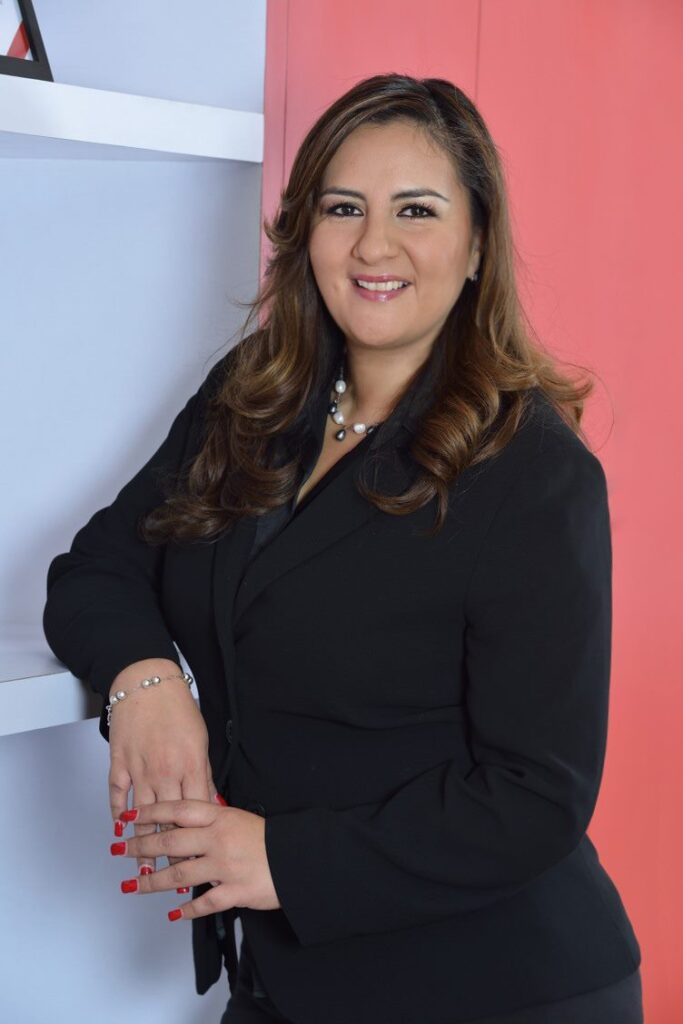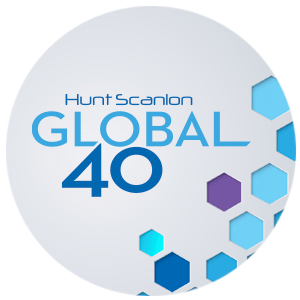Lucky number 7!
Our seventh edition is out and ready to be shared with everyone.
This month we have with us Ángeles Madrigal, Partner of INAC Mexico.
Ángeles holds a Bachelor degree in Business Administration from the National Autonomous University of Mexico. Ángeles is also qualified in organization and Re-engineering process, and is Certified in Competences Interview Methodology by DDI, in SEL, Insights and Assessment as a Top Talent Evaluation Consultant.
She has 18 years of experience in Human Resources, and has occupied executive positions in Human Resources in Financial institutions, along with 10 years in headhunting companies in Recruitment and Selection of Top Executives.
Ángeles has worked with Corporate clients in the IT industry, Consumer Goods, Financial, Pharmaceutical and Services.
Ángeles is also the founder of Wo/Men[In], specialized in the strategic cycle of talent by integrating diversity and inclusion as transformational forces in organizations.
As you can see, there is a lot to know about Ángeles!
Why Executive Search and If you did not end up in Executive Search, what would you ended up choosing instead?
Executive Search is very special to me because it fills me up with its dynamism, each day is different. It gives me the opportunity to get to know different industries, areas and clients, that teach and contribute every day to my career. When it comes to Executives, they show me new perspectives, diversity of thoughts, the essence of the human being, how to achieve a positive influence in their careers. It is our mission to boost businesses and change lives in a positive way by providing many possibilities and making it an exciting career.
If I were not in Executive Search, I would probably look for something that would somehow be related with moving businesses through talent’s diversity and balancing them in a perfect equation.
Executive Search is all about meeting and establishing a connection with people. With so many years of experience, do you have any advice for the younger generation that is now starting to create their own path?
Yes, I do. I think one thing I have witnessed is that it is very important to think hard and long when it comes to a career movement. You should envision your goals in the medium term and build your path around that. Work with resilience and patience in order to consolidate your career.
In just one year the world has changed drastically. Businesses and people had to adapt rapidly and acquire skills that they didn’t had before. What do you believe are now the main skills needed to thrive in Executive Search career?
Strategic vision, self-reflectiveness, inclusive thinking and communication, transformational leadership and, above all, resilience and flexibility are very important ones.
In a business where it is still very dominated by men, how do you see the role of women in it? In what way do women add to this particular business?
Women are becoming more and more relevant in businesses and in this changing world, governed by VUCA environments (Volatile, Uncertain, Complex, Ambiguous), gender equity is absolutely necessary.
It is proven that the sum of gender diversity is what makes organizations stronger and more resilient. It is documented that women are more likely to manage risk better and lead strongly in times of turbulence.
So, from what I can see and taken my experience, most businesses are focused in creating strategies to achieve a bigger balance regarding gender equity.

You are also the founder of Wo/Men[In], that specializes in the strategic cycle of talent by integrating diversity and inclusion as transformational forces in organizations. How did it started, what was the driving force behind it and what are its achievements, its impact?
Wo/Men [In] started because I realized that there was a lot to when it came to D&I, it was just only mentioned in inspiring speeches. So, in 2013, I decided to take action together with 40 leaders from various companies, to come up with an initiative based on sharing best practices, and helping organizations in this process of transformation towards an inclusive culture. It has been a long path, a challenging one and there is still much work to do with those who “move” within the organizations. Over several years, we have driven and spoken to more than 100 companies on this subject. Each year we take action with a new generation, made up of talent interested in learning and sharing, and in building more inclusive organizations.
Undoubtedly, the force behind it has to do with seeking a more equitable environment that allows my 3 daughters to demonstrate their talent, without having the need to fight for a greater equity. Diversity is natural and it generates an environment of respect, where everyone can feel included as well as demonstrate their potential.
In your day-to-day life you end up meeting top tier executives and highly motivated professionals with an impeccable track record. Given the current circumstances, do you believe that we may be facing a shift in terms of what companies and organizations are looking for in a candidate?
Definitely. In this new reality, change is a constant and the new currency of change is talent. Organizations are looking for “breakthrough” profiles, highly focused on digital topics and with a very good balance between the experience of employees and customer experience. Leaders are sought out with more humanistic styles, more focused on the employee: caring about the results, but at the same time taking into consideration their talent needs and moments of emotional connection.
You have helped so many finding their dream job, do you feel that they have helped you find something in life as well?
Yes, definitely, always! Each and every interview, contact, or follow-up is an opportunity to learn something new. In fact, I really enjoy getting to know other ways of thinking, of solving problems or even of analyzing your stumbles. Being an Executive Search Consultant allowed me to be a better professional. I have a ritual: at the end of each interview, I simply thank the Executive for what they have taught me, I see each of these “sessions” as a Master Class.
INAC has been part of your life for so many years now. How has this “relationship” shaped your professional and personal path/growth? What has been, so far, the biggest life lesson you received?
INAC gives me the opportunity to have a global vision, to get in touch with extraordinary talent from all continents. I have learned a lot, but perhaps the most important thing is that no matter what culture, country, region, or continent, talent must always be valued. Through INAC I’m lucky to be able to meet great professionals with whom, regardless of their different ways of thinking, I end up sharing very similar values which allow us to trust and do business on a global level.




